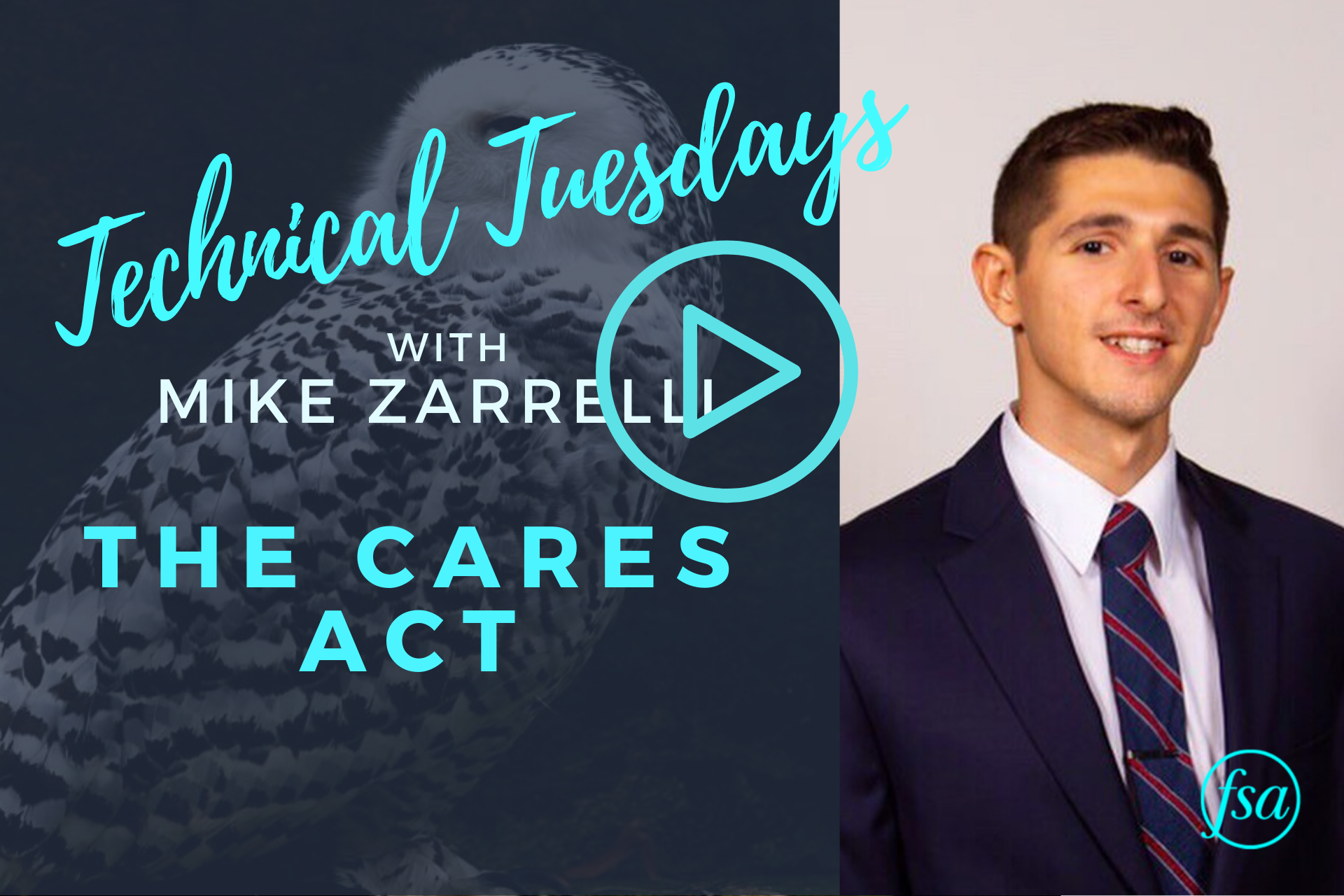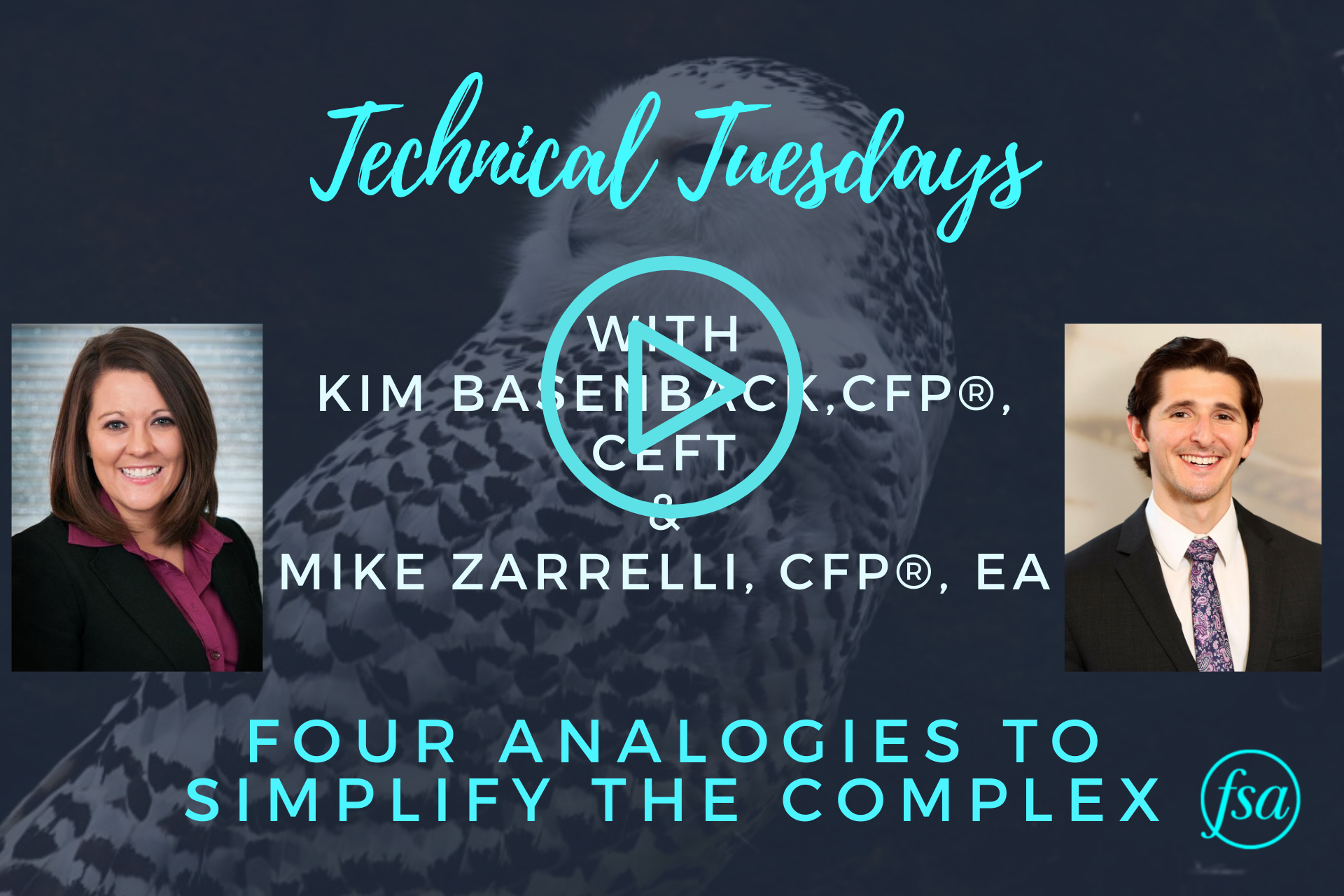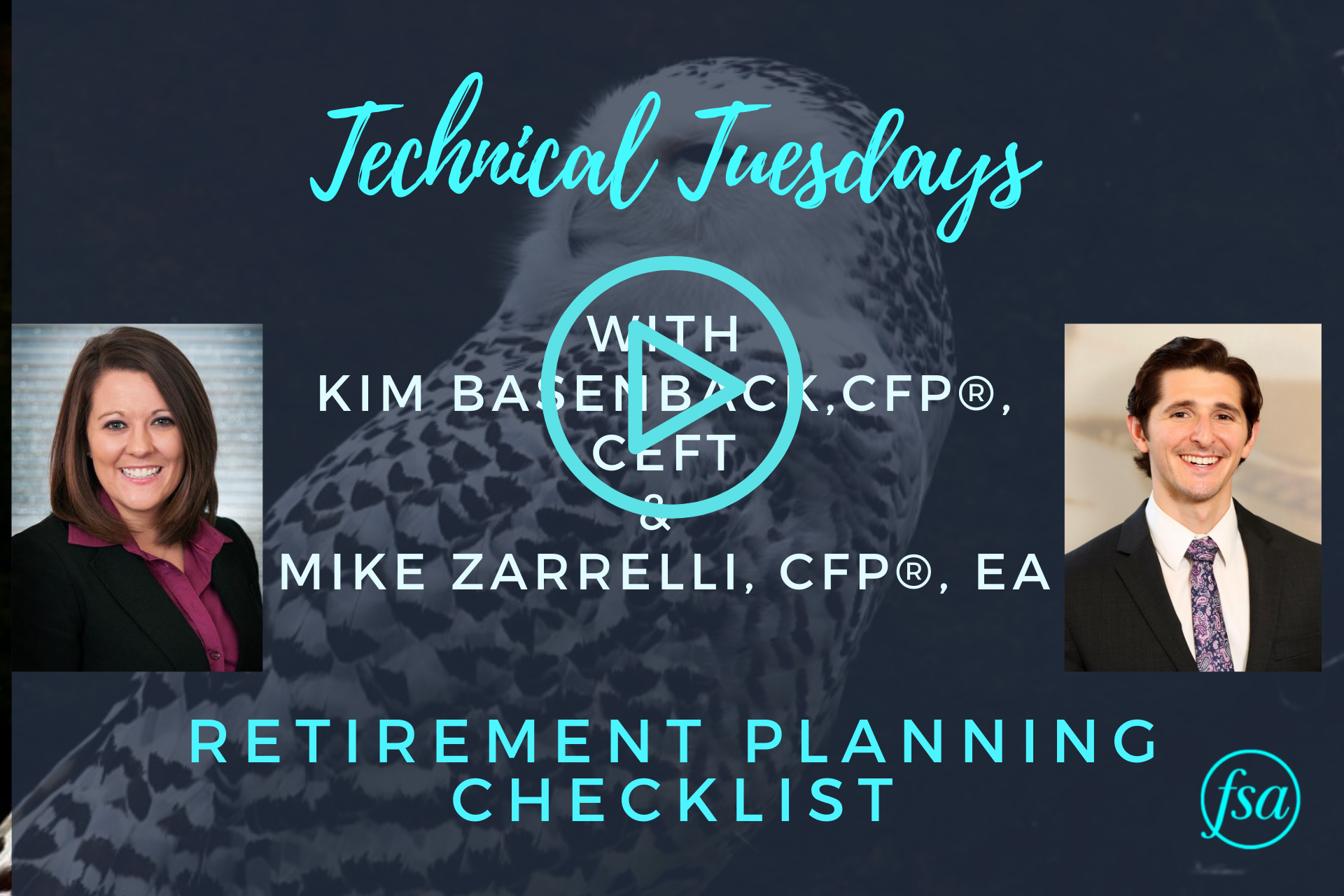In this edition of Technical Tuesdays, Mike Zarrelli shares important information on the CARES Act.
The CARES Act Transcript
Thank you for joining us for Technical Tuesdays. I’m Mike Zarrelli, Client Service Associate at Financial Services Advisory. We hope you’re doing well, staying safe and healthy. Today, we would like to review the recently passed CARES Act.
The CARES Act stands for Coronavirus Aid Relief Economic Security, and here are some highlights. To start, the 2019 federal tax filing and IRA contribution deadline was moved from April 15th, 2020 to July 15th, 2020. While the federal tax filing date was moved, please check with your state to see if they moved the date as well.
Next we have one of the biggest changes from the Act. All required minimum distributions are waived for 2020. This includes IRAs, inherited IRAs, and employer-sponsored plans. If you turn 70½ in 2019 and defer your first RMD to 2020, you will be able to waive not only your 2019 RMD but your 2020 RMD. If you have already taken your RMD this year, you may be eligible to roll that amount back into your account. If the distribution was taken on February 1st or later, you have until July 15th, 2020, to roll that amount back into the account.
One thing to note is the SECURE Act, which was passed at the end of last year, changed the requirement minimum distribution age from 70½ to 72. For a refresher on the SECURE Act, please see our previous video. Next we will talk about retirement account distributions.
If in 2020 you took a distribution because of a coronavirus-related expense, you may be able to spread out the taxes over the next three years. This provision is applicable to up to a hundred thousand dollars in distributions. You also have the option to repay that amount over the next three years.
Another thing to note is that if you were 59½ or younger and took that distribution, the 10% penalty would be waived. Coupled with these distributions are qualified charitable distributions. If you do qualified charitable distributions and waive your RMD this year, you are still able to make that QCD. Please know that this only applies to folks older than 70½.
Next, we will talk about the recovery rebate. At the time of this video, you may have already received this. The rebate is a one-time nontaxable payment that is based on either your 2018 or 2019 tax return, whichever is most recent. For single filers, you could receive up to $1,200 and for married filing jointly, you may receive up to $2,400. If you have kids under the age of 17, you may be able to receive an extra $500 in rebates for each kid. To qualify for this rebate, you must be under certain AGI levels. The rebate phases out at 150,000 for married filing jointly, 112,500 per head of household, and 75,000 for single or other filing statuses. If your 2018 or 2019 tax return is above those AGI levels but your income in 2020 has dropped, once you file that 2020 tax return, you may qualify for this rebate.
Moving on, the CARES Act made improvements to unemployment benefits. Now, the waiting period for unemployment benefits is waived, weekly benefits are increased by $600, and the benefit period is increased by up to 13 weeks. The CARES Act also created pandemic unemployment assistance. What this does is it allows self-employed individuals to apply for unemployment.
Up next, we have small business provisions. The PPP, or Paycheck Protection Program, our loans for small businesses with fewer than 500 employees, the loans can be up to $10 million and are backed by the Small Business Administration. The portion of the loan that is used for paychecks, utilities, rents, and other essential items during the first eight weeks may be forgiven. Now, certain requirements must be met to be eligible for this.
Finally, if you have federally backed student loans, your payments and interest are waived until September 30th, 2020. While not required, you still may be able to make payments on this loan. Another note, if you are in the federal student loan forgiveness program, these waived payments still count towards the required minimum amount of payments.
A landslide of information is coming out almost daily, and we are getting updates as fast as we can. If you have any questions or are impacted by the CARES Act, feel free to give us a call or email us.
For now, I’m Mike Zarrelli, Client Service Associate, and this has been Technical Tuesdays.
FSA’s current written Disclosure Brochure and Privacy Notice discussing our current advisory services and fees is available at www.FSAinvest.com/disclosures or by calling 301-949-7300.




